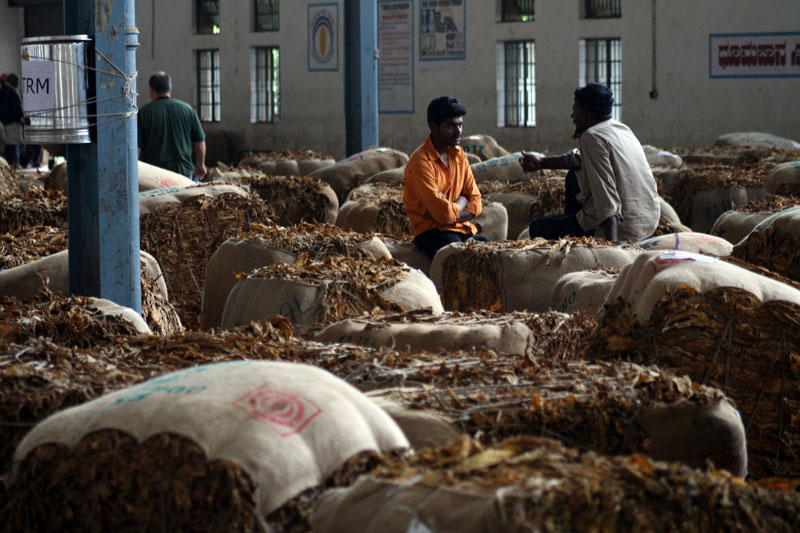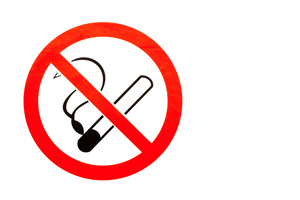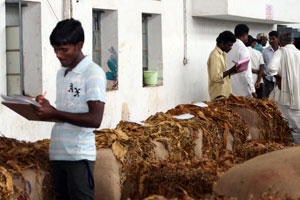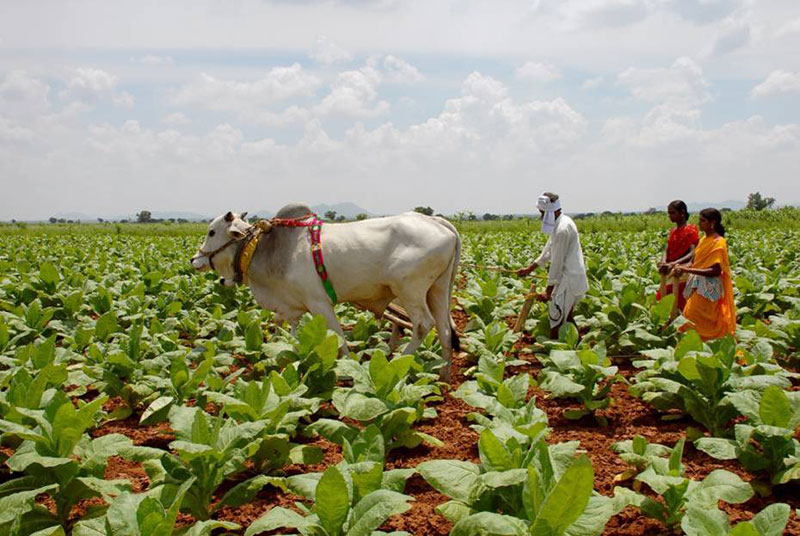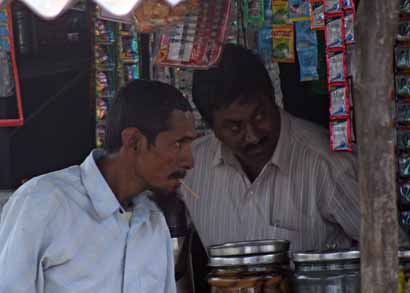A decision by the authorities at the Indian Institute of Technology, Delhi (ILT-D), to take action against students found smoking and drinking on the campus has set off angry reactions, according to a story by Fareeha Iftikhar for DNA India.
The engineering students at the premier institute have been asked to sign an undertaking declaring that they won’t smoke cigarettes or consume alcohol on the premises.
Citing the country’s anti-drug laws, IIT-D has said that any violation could lead to ‘expulsion’.
According to the IIT-D administration, it issued the diktat after discussing a code of conduct with students’ representatives.
But the students, particularly those doing post-graduate work, are in no mood to buy this argument. Some do not believe that the diktat was ever part of the code of conduct.
The institute cannot have the same set of metrics for everyone at IIT-D, said a student pursuing a PhD in management. “We are not against the move as it is for the betterment of those who are in their early 20s,” the student was quoted as saying. “But why students above 25 are being directed to sign such undertakings of moral policing?”
The upset students at IIT-D say they plan to air their displeasure through social media.
The story is at: http://www.dnaindia.com/delhi/report-dna-exclusive-iit-delhi-students-fume-over-smoking-and-drinking-diktat-2602547.
Tag: India

Indian students rebel

India invests in a meeting
India’s Commerce and Industry Ministry is due on April 11 to convene a meeting of all stakeholders, including farmer associations, private companies and government departments, to discuss foreign direct investment (FDI) in the tobacco sector, according to a Press Trust of India story published by Bloomberg.
Currently, FDI is prohibited in respect of the manufacturing of cigars, cigarettes and tobacco substitutes. However, it is permitted within the tobacco sector in respect of technology collaboration in any form, including licensing for franchises, trademarks, brand names and management contracts.
The meeting assumes significance because, in 2016, the Ministry’s Department of Industrial Policy and Promotion floated a proposal to put a complete ban on FDI in the tobacco sector.
The government did not make a decision on the matter due to concerns raised by companies and tobacco farmers’ associations.
The meeting is expected to be attended by officials from government departments as well as local and overseas tobacco farmers’ associations, tobacco companies and business groups.
The Bloomberg story is at: https://www.bloombergquint.com/business/2018/04/08/dipp-calls-meeting-of-stakeholders-on-fdi-in-tobacco-sector.
Upbeat in Andhra Pradesh
Flue-cured tobacco growers in the Indian state of Andhra Pradesh were said to have been paid ‘fairly good’ prices during the first two days of this season’s auction sales, which opened on March 8 in the traditional growing areas of the Southern Light Soil region.
According to a story in the latest issue of the BBM Bommidala Group newsletter, growers were paid an average of Rs160 per kg during the early sales.
But prices are expected to increase once sales come to an end in the other flue-cured-tobacco state, Karnataka, towards the end of this month or early next month.
The auctions began on an optimistic note for growers in part because international companies are being allowed this season to participate directly in the sales, after registering as exporters or dealers.
Growers are looking for ‘remunerative’ prices of Rs176 per kg for bright grades and a minimum of Rs100 per kg for low-grade leaf.
The optimism has been caused also by the quality of the crop, which is said to comprise a majority of bright grades.
The Tobacco Board of India set the authorized crop size for Andhra’s 2017-18 season at 136 million kg.
Sales in the Southern Black Soil region of Andhra are due to start on March 19.
Meanwhile, in Karnataka, the average price stood at Rs150 per kg with more than 88 million kg sold against an authorized crop of 99 million kg.
Following 141 days of auctions, growers had sold 18.42 million kg of bright-grade leaf for an average of Rs161.97 per kg, 41.26 million kg of medium-grade tobacco for an average of Rs148.29 per kg, and 28.58 million kg of low-grade leaf for an average of Rs115.02 per kg.
Ban sought in Bengaluru
Tobacco smoking could be banned, rather than restricted, in restaurants, bars and cafés in Bengaluru, Karnataka, India, if a high-power committee on tobacco control has its way, according to a story by Sunitha Rao R for the Times of India.
Last month, the committee suggested that designated smoking zones should no longer be allowed in bars, restaurants and cafés.
It said that providing such zones provided the opportunity for establishments to violate the rules.
“No restaurant has maintained the designated smoking zone as per norms,” said committee member Dr. Vishal Rao U S. “In some cases, smoke from these zones is being let into children’s play areas, resulting in passive smoking. The recent Global Adult Tobacco survey data shows India has high exposure to second-hand smoking.”
Section 3 of the Karnataka Prohibition of Smoking and Protection of Non-Smokers Act 2001 prohibits smoking in public places.
“We’ve suggested to the BBMP (the administrative body – Bruhat Bengaluru Mahanagara Palike) to ban smoking in bars, hotels, restaurants, pubs and cafés and not allow any designated areas for smoking,” he added.
The BBMP’s joint commissioner for health, Sarfaraz Khan, said notices would be issued to all pubs, bars, restaurants and hookah bars in the city about implementing the relevant act. Simultaneously, inspections would be conducted.
Khan said that during inspections of many hotels and pubs, it was found that their smoking zones were not compliant with the act. Smoking zones could be created in restaurants with more than 30 tables, but they should “ideally” have exhaust fans and be such that smoke did not enter other rooms. These provisions were being violated everywhere, he said.
G Honnagiri Gowda, president of the Karnataka Wine Merchants’ Association and representative of the Karnataka Pub Owners’ Association, said the associations would support the ban. “It has become a nuisance for other customers every time a person smokes inside pubs,” he said.
And K Shamaraju, treasurer of the Federation of Hotel and Restaurants Association of India, said many hotels had already banned smoking. “We have implemented the rule,” he said. “Customers who want to smoke are told to go outside. Smoking is not entertained within restaurant premises.”
Prices ‘reasonably good’
Flue-cured tobacco growers in the Indian state of Karnataka are being paid ‘reasonably good’ prices during the ongoing 2017 selling season, according to a story in the latest issue of the BBM Bommidala Group newsletter.
After 132 days of sales, growers were said to have sold 80.54 million kg against an authorized crop of 99 million kg.
Bright grades were said to have attracted an average price of about Rs162 per kg, while medium grades had earned an average of about Rs148 per kg and low grades an average of about Rs115 per kg.
Overall, the tobacco sold so far had gone for an average of Rs140 per kg, up from Rs134 per kg during the previous auctions.
Meanwhile, flue-cured tobacco auctions in Andhra Pradesh are due to start on March 8.
The Tobacco Board of India authorized a crop size of 136 million kg for the current season, but, according to official estimates, unhelpful weather means that it is likely to come in at about 120 million kg.
Andhra growers, faced with increased costs, are said to be demanding a price of at least Rs140 per kg.
Trading rights under threat
The Indian government is asking the Supreme Court to apply a rarely-used classification to the tobacco industry that would strip it of its legal right to trade, according to a Reuters story.
The move is said to be aimed at deterring tobacco companies from challenging new regulations.
But the government reportedly is not seeking to ban tobacco.
According to a Reuters review of a previously-unreported court filing by the Health Ministry on January 8, India’s top court is being asked to classify tobacco as res extra commercium, or a thing outside commerce.
If applied, the classification would have far reaching implications in denying the industry’s legal standing to trade and in giving authorities more leeway to impose restrictions.
The Supreme Court’s application of the classification to the alcohol industry during the 1970s paved the way for at least two Indian states to ban alcohol completely and provided for stricter regulations.
R. Balasubramanian, a government lawyer who is acting on behalf of the Ministry of Health in pursuing the classification implied that the effects on the tobacco industry would be greater than they were on the alcohol industry. “It will be a fillip to this drive against tobacco,” he said.
Balasubramanian said, however, that the government was not discussing banning tobacco and the goal of invoking the classification was only to curtail the industry’s legal rights.
Looking to quit
Some flue-cured tobacco growers in the Prakasam district of Andhra Pradesh, India, are willing to quit the crop if the union government will compensate them to the tune of Rs1,000,000 per barn, according to a story on The Hindu Online.
Having suffered four consecutive years of drought, some of the growers operating in the traditional Southern Black Soil (SBS) and Southern Light Soil (SLS) areas of Prakasam are keen to quit flue-cured tobacco growing if the government provides compensation for dismantling the barns permanently.
The SBS and SLS areas account for 50 percent of the tobacco grown in Andhra Pradesh.
YSR Congress Party’s chief whip in Parliament, Y.V. Subba Reddy, is due to lead a delegation of farmer leaders to New Delhi to press for a suitable financial package to be included in the Union Budget.
The proposal is being presented as being in line with the strategy of reducing tobacco production laid out by the World Health Organization’s Framework Convention on Tobacco Control.
And it is being seen as almost inevitable as drought-hit growers have been forced already to cut down tobacco curing per barn by about 20 percent and fear that further reductions could render cultivation and processing unviable.
Any tobacco reduction strategy that did not include a reduction in the number of barns would be a futile exercise, the growers say.
The Hindu story said the clamor for quitting tobacco growing had gathered steam since 2015 when the sector saw a spate of suicides among growers, forcing the-then Union Commerce Minister, Nirmala Sitharaman, to visit the area and help growers by offering compensation of Rs20 per kg for low-grade tobacco that had no takers on the regular market.
Warnings case to continue
India’s Supreme Court on Monday put on hold a lower court’s order that quashed federal rules mandating larger health warnings on tobacco packages, according to a Reuters story.
The Karnataka High Court last month struck down the Cigarette and other Tobacco Products (Packaging and Labelling) Amendment Rules, 2014, which had enlarged the warnings to 85 percent of the two principal faces of packages of cigarettes and other tobacco products. The rules had been in force since 2016.
The Supreme Court, which heard petitions brought forward by tobacco-control activists, stayed the Karnataka court’s order on Monday, citing the need to protect the health of citizens.
The case is due to be heard next on March 12.
The introduction in India of bigger tobacco-pack health warnings has seen a number of false starts and U-turns.
The government issued a notification on October 15, 2014, requiring the printing of graphic health warnings on tobacco packs covering 85 percent of each of the two main surfaces. But the policy was referred to a parliamentary committee that recommended in March 2016 that, instead, the warnings should be set at 50 percent.
The government, however, decided at the end of March 2016 to go ahead with its requirement for 85 percent warnings from April 1 of that year.
In response, ITC, India’s dominant cigarette manufacturer, announced on April 2 that it had halted production at its cigarette factories because it was not ready to print the bigger, graphic warnings on its cigarette packs. The company said that its factories would be shut till clarity emerged on the matter.
The country’s other manufacturers also halted production on April 1 and bidi manufacturers followed their lead sometime later.
ITC said on April 2 that because the question of the legality of the new warnings had been and continued to be pending before the courts, it had not committed to investing substantial resources in creating the large number of printing cylinders and other tools necessary for a change to the warnings. The implementation of health-warning changes was an elaborate process entailing months of preparation and involving substantial costs.
Small retailers cry foul
More than 1,000 tobacco retailers yesterday protested outside the Union Health Ministry in Delhi, India, demanding a reduction in the size of cigarette-pack graphic health warnings, New Delhi Television has reported.
According to the retailers, protesting under the banner of Akhil Bharatiya Pan Vikreta Sangh (ABPVS), which represents about 7,500,000 retailers across India, the smuggling of tobacco products has increased in the country since the graphic warnings became mandatory.
Smuggled cigarettes carried no warnings, giving the impression that they were less risky than were tax-paid products.
The protest came days after the Karnataka High Court struck down the Cigarette and other Tobacco Products (Packaging and Labelling) Amendment Rules, 2014, which had enlarged the warnings to 85 percent of the principal area of packages of cigarettes and other tobacco products.
The court, however, rejected the challenge made to the rules laid down in 2008. The 2008 rules, which had required 40-percent warnings, would remain in force until the union government framed fresh rules or amended the 2008 rules.
The government is expected to appeal against the decision.
The president of the ABPVS, Ram Ashrey Mishra, said the anti-tobacco policy was being driven by vested interests promoted by various NGOs that were receiving huge sums of money from international players and that were hand-in-glove with large retailers.
They had been targeting small retailers to prevent them selling other, non-tobacco items, pushing customers to their large shops and closing out all the sources of income of small retailers.
The report said the Union Health Ministry, on September 22, sent an advisory to the Rajasthan government that sought to prevent shops selling tobacco products from selling other products such as candy, chips, biscuits and soft drinks: ‘products essentially meant for children’.

Huge warnings struck down
A court in India on Friday struck down regulations that have required tobacco companies to cover 85 percent of their packaging with graphic health warnings, according to stories in The Hindu Online, the Times of India and Reuters.
The companies were said to have won an important but partial legal battle against the union government.
The Hindu said that the Karnataka High Court on Friday had declared as unconstitutional the Cigarette and other Tobacco Products (Packaging and Labelling) Amendment Rules, 2014, which had enlarged the warnings to 85 percent of the principal area of packages of cigarettes and other tobacco products.
The court, however, had rejected the challenge made to the rules laid down in 2008.
The 2008 rules, which had required 40-percent warnings, would remain in force until the union government framed fresh rules or amended the 2008 rules.
A special division bench comprising Justice B.S. Patil and Justice B.V. Nagarathna delivered the verdict on a batch of petitions filed by the Tobacco Institute of India and tobacco manufacturers before the high courts of Karnataka, Calcutta, Delhi, Bombay, Gujarat, and Rajasthan, challenging the 2014 rules. All these petitions were transferred by India’s Supreme Court to the Karnataka High Court.
The Times report said that some public health experts felt that the court’s decision might cause harm to India’s global image.
According to Reuters, the government lawyer in the case, Krishna S. Dixit, confirmed the rules had been struck down but said he would appeal to the Supreme Court.



